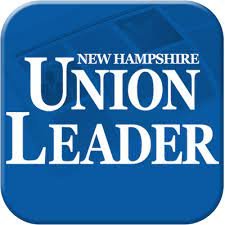
Keep NH Free, Stop the Federal Menthol Cigarette Ban
When it comes to implementing new public health policies, it's crucial to consider the real impact they have, especially on local communities and the small businesses who support them. Retailers across New Hampshire firmly believe that a federal ban on menthol cigarettes is not the solution we need.
To understand why New Hampshire residents should be against a federal menthol ban, just look across the border to Massachusetts, where a ban was enacted in 2020.
Federal Ban = Loss in Tax Revenues and Sales for NH
In the year following their menthol cigarette ban, Massachusetts saw a loss of nearly $127 million. That revenue has not returned as nearly 90% of sales have shifted out of state, primarily to New Hampshire.
According to the nonpartisan Tax Foundation, a federal menthol ban would cost our state $50 million annually in tax revenue alone. One-third of in-store sales in convenience stores are from tobacco and the estimated 90% of tax revenue and sales that have shifted out of Massachusetts to New Hampshire would be lost if the federal government decides to enact the same poor policy decision as Massachusetts did, deeply affecting our resources necessary for good schools, public safety, and critical infrastructure.
Federal Ban = Increase in Illicit Markets in NH
What has gone up thanks to Massachusetts’ ban on menthol cigarettes is the size of the state’s illicit market. A recent report by the Massachusetts Illegal Tobacco Task Force found that contraband cigarette seizures skyrocketed from just 5,377 in 2021 to 18,483 in 2022.
Illicit crime and the influx of dangerous narcotics go hand-in-hand. New Hampshire is no stranger to the fentanyl crisis. Recently, U.S. Senators Marco Rubio and Bill Cassidy have been sounding the alarm on the connection between the Mexican cartels at the heart of the fentanyl crisis who are now looking “to exploit black market opportunities” if the federal menthol ban goes into effect. In fact, this ban would put a strain on our law enforcement agencies, already overtaxed combating the opioid crisis, by mandating them to enforce these onerous regulations.
The lesson here is obvious: bans don't stop demand; they simply redirect it.
Despite the ban, people found ways to access the products they desired as a recent study published in Journal of American Medical Association Internal Medicine found that the menthol cigarette ban in Massachusetts led to a net increase in smoking among black adults. All the ban did was funnel millions in tax revenue out of the state and increase illicit trade. In fact, the ban has been considered such a failure that Massachusetts politicians are already openly considering a repeal.
If the federal menthol ban from the Biden-Harris administration goes into effect, the poor policy decisions of our neighbors in Massachusetts would be thrust on New Hampshire.
The evidence is clear: Bans don't achieve their intended goals.
As proud citizens of New Hampshire, we have always valued individual choice and the right to make informed decisions. The evidence tells us bans don’t work. Rather than repeating the mistakes of Massachusetts, let's learn from their experience, and not forfeit “the New Hampshire advantage.”
Join us in standing with New Hampshire retailers and tell presidential candidates that New Hampshire does not support the Biden-Harris menthol cigarette ban. Instead, when they come to New Hampshire we hope to hear better, educational and evidence-based solutions to address public health concerns while protecting our small businesses and preserving the autonomy of our citizens.
In The News
Stop The Bans, Keep NH Free
At the New Hampshire Institute of Politics, St. Anselm College
A discussion about the Biden-Harris federal overreach that will kill the “New Hampshire Advantage”



